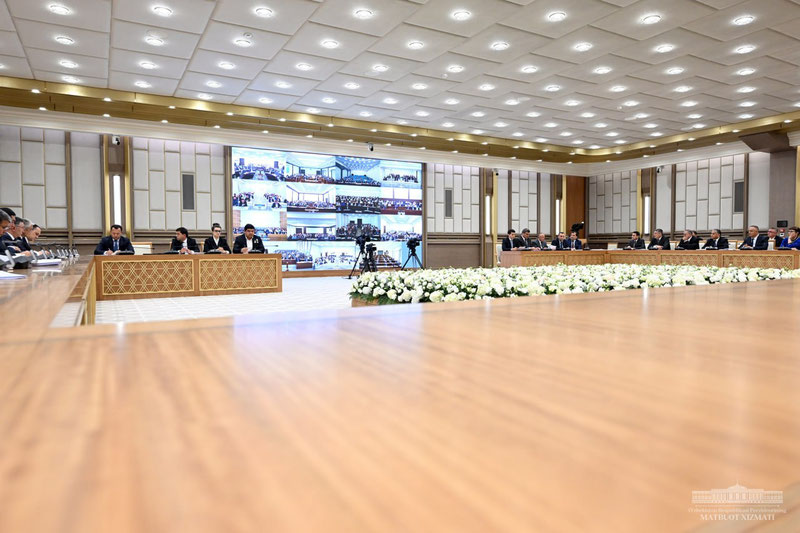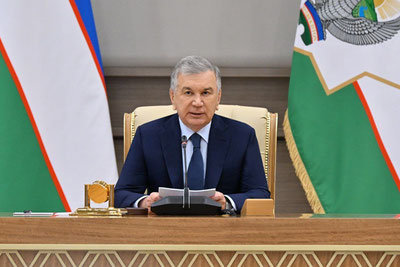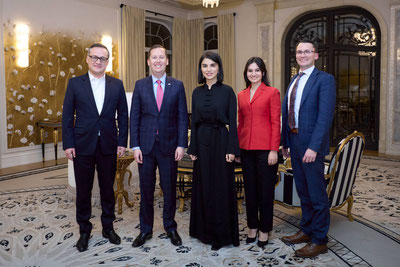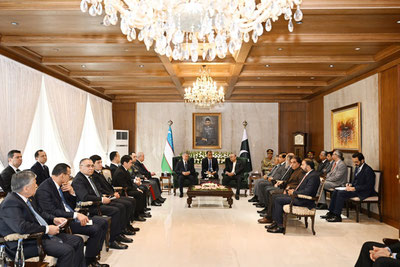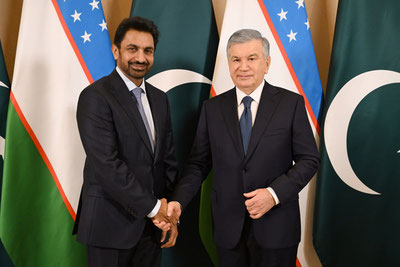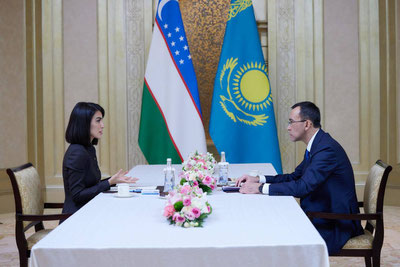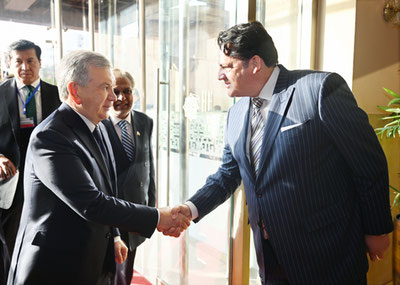Approximately 400 manufacturers, builders, and design organizations shared their opinions before the meeting chaired by the President. The President's press service reported this.
Most of them complained about the bureaucracy and excessive costs in the field, as well as the cost and quality of products. If the right conditions are provided for entrepreneurs, they are interested in working transparently. After the introduction of the entrepreneurs' rating, 11,000 builders and manufacturers moved up from lower to higher and middle positions.
90,000 jobs in their sector came "out of the shadows", and the average salary increased by 1.4 times. However, it was noted that the "hidden economy" in the sector remains high.
In the last seven years, $9 billion was invested in the construction materials sector, launching nearly 5,000 new enterprises and creating 94,000 permanent jobs. Production doubled, and companies with an annual turnover of more than 100 billion UZS increased to over 150. The volume of constructions also doubled in the last five years.
At the same time, it was possible to reduce the share of imports in construction by introducing $650 million worth of new products, decreasing the import share from 31% to 25%. The construction materials export market reached 58 countries, and more than 20 trade warehouses and over 50 trade stores were opened abroad. However, it was mentioned that these indicators are not sufficient for this sector, which has high demand in the market for its potential and products.
Just our neighbors alone are importing $2 billion worth of construction materials that we have already established production for, from other countries. We are still importing products like paint, wallpaper, PVC pipes and fittings, floor coverings, decorative stones, and plumbing fixtures that we have already started producing.
An example is that by using fibrous panel on the facade of buildings, it is possible to reduce energy consumption by an additional 10%. Importantly, the price of fibrous panels is up to 20% cheaper compared to other fire-resistant facade materials. The primary component used in producing these panels - cement and enriched sand are abundantly available locally.
Officials were reminded of the importance of increasing projects for such energy-efficient modern construction materials. Under the "Industrial Mortgage", instructions were given to initiate 7 projects worth $170 million for producing new products such as autoclaved aerated concrete, fibrocement panel, geotextile, basalt, etc.
Although the production of construction materials increased by 1.2 times in two years, the measures taken resulted in a decrease in energy consumption by 1.3 times and in energy intensity by 1.6 times.
Today, advanced foreign enterprises are actively using technology to generate electricity by reusing spent thermal energy.
For example, by reconstructing the furnaces and heat exchange equipment at the “Qizilqumcement” in Navoi, 37 million kilowatt-hours of electricity are saved annually.
Officials were instructed to complete energy audits in 34 high energy-consuming enterprises by November 1, ensuring annual savings of 300 million kilowatt-hours of electricity.
